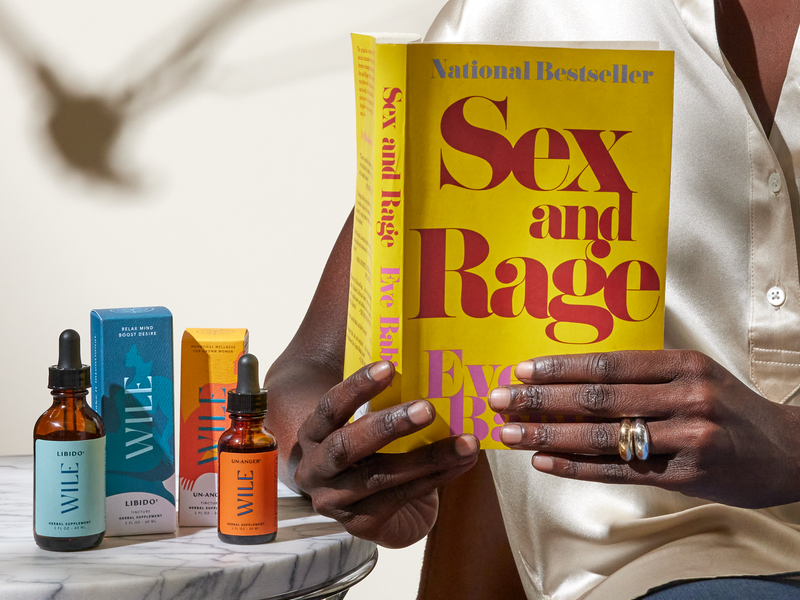The Flawed Study That Keeps Women From Getting Help
Hormones are part of us. Our body’s been making them our entire lives.
We are also given estrogen-filled birth control pills as early as our teens. And assured they are safely taken for a decade. Or more.
We’re offered high doses of hormones for infertility treatments.
But when our child-bearing years are sunsetting, any hormonal supplementation is often called risky. When hormonal balance can only benefit our own bodies and well-being–not contribute to male sexual satisfaction or motherhood—it’s become dangerous?
Hmmm.
Somewhere along the way, hormones got a bad reputation.
Hormones are not the enemy.
Sadly, our understanding of estrogen and menopause are where mental health was 10 years ago. The supposed risks of hormone replacement therapy have been repeated so many times, any sort of hormonal support is often dismissed by both women and their doctors.
On the shelf, we see “menopausal vitamins” or other perimenopausal supplements shouting:
“NO HORMONES”
“HORMONE-FREE”
From every ad or label.
Our Hormones Are Already Shifting
Yet this is the life stage where our own hormones are already starting to shift and decline. It’s a time when more would balance what is already less.
Hormonal shifts and imbalances often start around 40 and kick in around 42-44, but it can start sooner. Depending on your body, that can mean many things: vaginal dryness, sleeplessness, memory loss—the list goes on.
Hormonal supplementation like a logical option to explore. But then, we're told it's risky. Why? It comes back to one flawed study.
Bad PR For Hormones
In 2002 the Women’s Health Initiative (WHI) released a study about Hormone Replacement Therapy (HRT). It linked HRT to an increased risk of breast cancer, heart disease and stroke.
But the study was flawed—or in the words of the experts: “inadequately designed, evaluated, and reported.” (The National Center for Biotechnology Information).
Hormone Replacement Therapy Makeover
In 2017, hormones released a PR statement to set the record straight. (Actually, it was the North American Menopause Society).
It turns out, over 33 international health organizations said HRT and estrogen are part of safe hormonal management therapy. Like going to the gym, eating our greens and resting, hormones are part of our healthy well-being. Supplements via HRT or natural means like Wile are often a viable option.
Yet the original study embedded itself so deeply in women's health journalism, conversations and doctor's offices that the old flawed science often is still what women hear and fear. So they don't even ask. And some doctors may not have the answers.
Phytoestrogens And How They Can Help
It’s been noted by at least one study that the drive to demonize estrogen in menopause and “medicalize” perimenopause is an American idea that’s spread to other countries. Just like Marvel movies, fast food and various Bravo franchises.
And the results could be just as questionable. In some Asian cultures, there isn’t even a word for menopause and that women report fewer symptoms of signals of transition (aka symptoms).
This healthy mid-life state has been linked to their high soy consumption. Soy has one of the highest concentrations of isoflavones, a kind of phytoestrogen.
Phytoestrogens are different from the synthetic hormones we find in HRT. Most notably, they are not as strong and thus balance the body differently.
Hormones Are Nuanced—One Size Does Not Fit All
HRT takes many forms, and not just estrogens. Progesterone may be the first hormone supplemented in perimenopause.
No single supplement nor pharmaceutical will work for everyone. Learn more about your body, track any changes over time and talk to your health practitioner.
Wile supplements are created with experienced naturopaths and integrative practitioners who not only formulate for people every day, but also talk with them. Every formula is created synergistically not simply to replace one thing or another, but to work with the system.
Ask questions. Especially when you hear someone repeating “hormones or phytoestrogens aren’t safe for perimenopause. You just need to get through it.”
We embrace phytoestrogens, adaptogens and more in our formulas, all clinically backed by studies.
This article is intended for informational purposes and is not intended to replace a one-on-one medical consultation with a professional. Wile, Inc researches and shares information and advice from our own research and advisors. We encourage every woman to research, ask questions and speak to a trusted health care professional to make her own best decisions.




